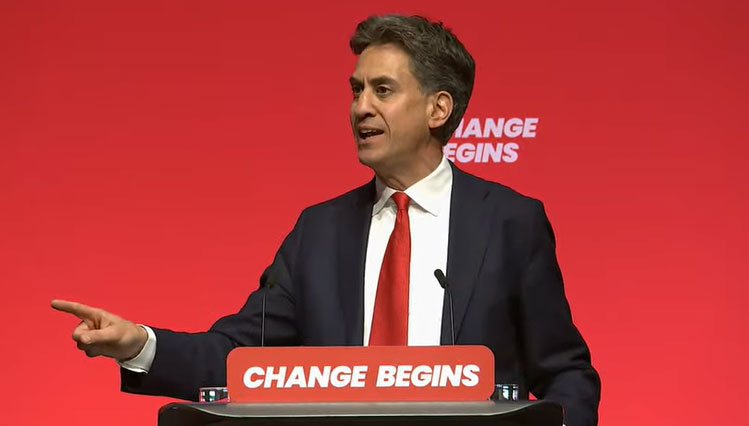By Sidhi Mittal
Copyright edie

Speaking at the Labour Party conference in Liverpool on Tuesday (30 September), Miliband said fracking — the process of extracting gas and oil from shale rock — “will not cut household bills, will not deliver long-term sustainable jobs, and will undermine our climate commitments.”
His comments came after Reform Party leader Nigel Farage pledged to lift restrictions on shale gas extraction if his party were to win the next general election, drawing comparisons with the Trump administration’s “drill, baby, drill” policy in the US.
Analysis by Friends of the Earth has identified 187 parliamentary constituencies that fall partly or wholly within areas considered “shale prospective” by the British Geological Society. These areas would be threatened under Reform’s fracking agenda.
According to the research, 141 of these seats are currently held by Labour, 25 by the Conservatives, 15 by the Liberal Democrats and two by Reform UK.
Miliband criticised Reform’s position, describing fracking as “dangerous and deeply damaging to our natural environment,” and reiterated Labour’s commitment to legislate for a permanent ban.
Clean energy jobs and investment
He also outlined measures aimed at the supporting and growing the energy sector workforce. Plans include closing loopholes that leave offshore renewable energy workers with fewer rights than oil and gas employees, extending national minimum wage protections, and introducing mandatory worker representation on the boards of publicly owned bodies such as Great British Energy.
A new Fair Work Charter is also set to be introduced, requiring companies that receive government funding through the Clean Industry Bonus to guarantee fair pay and strong workplace rights.
In addition, Miliband announced that up to £75m from Great British Energy will be allocated to help around 50 military sites, more than 70 NHS facilities and 50 further schools reduce their energy bills. This takes total funding to £255m. Around 250 schools, 270 NHS sites and 15 military facilities across England will benefit.
Industry reaction
Environmental groups have welcomed the rhetoric and urged swift changes to policy.
James Alexander, chief executive of UKSIF, said: “We welcome the Government’s decision to announce a comprehensive ban on fracking, following a decade of failed attempts to launch this ailing industry.
“Geological, regulatory and reputational hurdles mean speculative financing for new projects would be fraught with risk and uncertainty.
“Investment in our rapidly growing clean energy sector is a far more attractive prospect, as it offers the potential of long-term returns in a proven industry.”
Asad Rehman, chief executive of Friends of the Earth, said: “By providing a clear vision for our energy future based on helping people, not on ignoring the science, the Energy Secretary has sent an important message that the government is listening to communities.
“Fracking is and always has been unpopular, both with people facing it off locally and the wider public. The Government must now translate its plans to ban fracking permanently into policy, alongside closing a loophole in planning law that still allows it to happen by the backdoor.”
Rick Parfett, head of climate at WWF, said: “In a volatile world, investing in clean British energy and insulating homes helps cut bills, turbocharges the green economy – which grew by 10% last year – and supports jobs, families, and the environment. It’s just common sense.”



